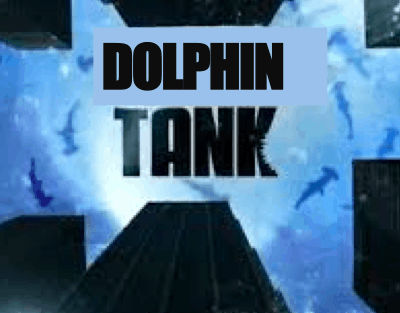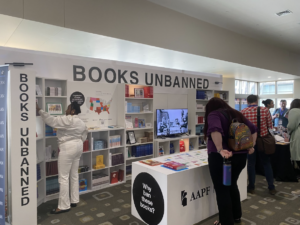Edupreneurs Swim in the Dolphin Tank at SXSW

Alex Hernandez, Charter School Growth Fund, and Tom Vander Ark kicked of their annual Investing in Education Innovation workshop at SXSWedu by noting their mutual enthusiasm for innovations in learning and the anticipated worldwide impact. “There’s never been a better time to be an entrepreneur,” said Alex (@thinkschools).
The standing room only crowd identified hot topics in funding–both venture and philanthropy: personalized learning, STEM (or STEAM), blended learning, teacher effectiveness, college and career readiness, workforce development, and social emotional learning (non-cog variables, mindset, etc).
Participants noted a big jump in seed funding over the last two years, more women-led companies, and more viral teacher adoption of learning resources and tools. Tom and Alex noted some positive trends in venture funding:
- Venture capital investment up about 5x in 5 years;
- Viral adoption (that looks like consumer internet) and a few exits boosted interest and broader VC participation ; and
- Beginning to think about global opportunity and the role of mobile.
- Big tech entering fray (e.g., Google invested in Renaissance). Is media next?
Despite the explosion in education venture capital (#EduVC):
- There are few EdTech VCs; start-ups must get there on less capital;
- Incubators put teams on short cycles working small problems, not big opportunities;
- Traditional VCs won’t invest in startups doing business with districts;
- Freemium is prevalent, promising, but not proven;
- There is a valley of death (post seed, pre-Series A) for impact-seeking companies; and
- Weak demand aggregation/signaling.
Foundations are finally in the EdTech game with grants and a few program related investments (PRI, return seeking grants with programmatic goals) and even a few endowment investments in EdTech funds (watch for an impact investing paper this month). There’s more opportunity for nonprofit efforts (e.g., Khan Academy, New Classrooms, Gooru, PowerMyLearning) and some funding for innovative school models (e.g., NGLC)
Tom noted that if you want to do innovative work, you’ll be out in front of the market and you’ll need an impact investor to buy you a runway. Similarly, Bill Hughes, Pearson, said “Venture capital is not a good funding process change,” suggesting an important role for philanthropy.
Michael Robbins, who recently left the Department to create @SpanLearning said we need to do a better job connecting the dots between investment in and outside of schools (watch for a #SmartSeries paper this month on next-gen guidance and support systems).
The second half of the session was a kinder gentler version of the popular TV show Shark Tank. The “Dolphin Tank” judges gave two dozen edupreneurs a chance to pitch thier idea. Jen Holleran, Startup: Education, and Michael Staton, Learn Capital, joined Tom and Alex and provided feedback. Pitches included:
-
Mike Olson pitched Talent Unbound, a low cost private school;
-
Brooklyn Lab Schools, Erin Mote and Eric Tucker are embracing joy and rigor in their planned NGLC winning 6-12 school model;
-
Small Lab Learning, another NGLC winner, where physical action meets 21C learning (see video);
-
Royce Siggard (@BizCzar1) is serving special needs adults who need help getting a job;
-
Michael Robbins (@SpanLearning) is creating digital learning partnerships to support student success;
-
John Ruff pitched startup Scribesense, an automated grading process that won the Dream Big America competition;
-
Andyshea Saberioon pitched school fund raising site PledgeCents;
-
Dr. “Grasshopper” Illangkoon (@BlueMarbelSpace) pitched SagaNet, an effort to bring scientists into the classroom;
-
Career Foundry is an interesting employability startup from Germany;
-
Quexter: snap a photo of your homework problem and get help fast;
-
Veteran NPR report Monica Brady Myerov launched Listen Edition (@listenedition), a source for curated podcasts and related lessons for kids;
-
Ernie Delgado pitched his EdTech service provider Beyond Technology Education (@beyondteched);
-
Mosamack is a series of animated short science mysteries (@mosamack);
-
PicMonic (@picmonic) is an audiovisual learning solution;
-
Institute for the Future of Learning (@juliemargetta) is building labs in community centers for kids with ADHD;
-
Naimish Gohil closed the show with Show My Homework, the UK’s No.1 solution for tracking and monitoring homework.







0 Comments
Leave a Comment
Your email address will not be published. All fields are required.